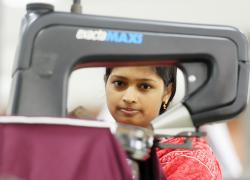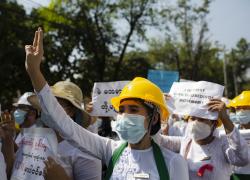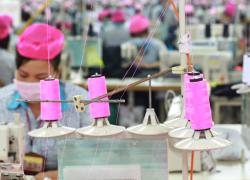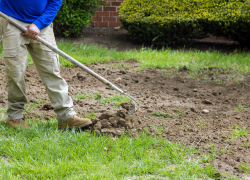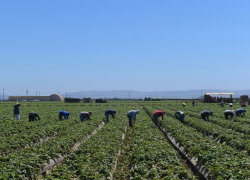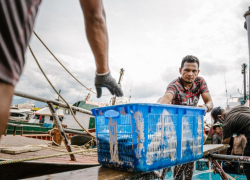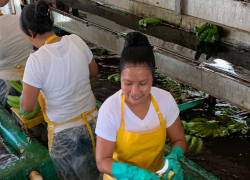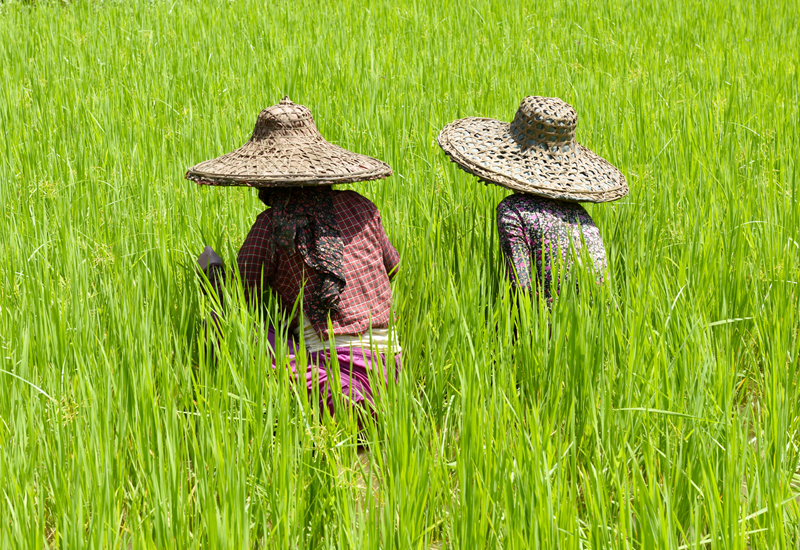
Imagine a rice farmer and her child in Nepal. Imagine their land going uncultivated as floods, monsoons, landslides and a rapidly changing ecosystem devastate their crop. That farmer and her child might have to start migrating seasonally near the brick kilns, where it is estimated some 34,000 children now live. More than half of those children work in the kilns, sacrificing their childhoods and risking their safety to help their families survive.
This is a small snapshot of what’s happening all over the world. In fact, over half a billion children dwell in areas with extremely high levels of floods and over 150 million children live in high drought severity areas. In either case, families are often forced to take lower-paying jobs to make ends meet in which employers exploit their desperation.
The Department of Labor’s Bureau of International Labor Affairs works to strengthen labor rights globally and combat egregious violations like child labor, forced labor and human trafficking. Increasingly, that means understanding emerging links between climate and labor rights.
Yet too often, labor is a secondary concern in both national climate policymaking and corporate “green” social responsibility models. Clean energy companies, whether in the auto industry or the smartphone sector, may tout their sustainability efforts but we often see workers left out of the decision-making process. This exclusion risks leaving entire populations behind and fails to secure buy-in from working people and communities on the front lines of adaptation and mitigation efforts.
There is a huge opportunity – and an imperative – for companies to move beyond shallow social compliance models that look good from a public relations angle toward making sure workers get a seat at the table. Where feasible, companies can join binding and enforceable agreements between buyers, suppliers and big brands that engage both companies and worker-led organizations, including trade unions. ILAB’s Comply Chain tool helps companies empower their workers to play a central role in identifying and addressing labor rights violations and other concerns in the workplace.
When it comes to government investments in renewable energy, a worker-focused “just transition” means creating good jobs in safe workplaces that respect workers’ rights. There should also be sustainable social protection for workers who have been displaced or lost their jobs.
In all these conversations, workers and their organizations need to be at the table from the outset. That’s because when workers have a voice, they can expose labor exploitation and bargain collectively for better wages and working conditions. Empowered, fairly paid workers can take care of their families. They do not have to experience the heartbreak of putting their children to work just to survive. This not only benefits families, it is vital for robust and sustainable economic growth and prosperity.
At the Department of Labor, we are making climate policy work for working families around the world. For example, we are collaborating with World Education, a local NGO in Nepal, on a $4 million project to better understand the effects of the country’s changing climate on child and forced labor risks. In June, we commemorated World Day Against Child Labor with a discussion on just transition and the global community.
Worker-centered climate policies won’t lower temperatures or prevent cyclones. However, they will help build resilient communities, support working families to protect children from exploitation and build a clean energy future that is sustainable for all.
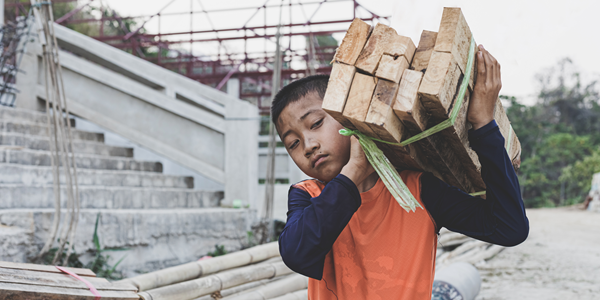
Thea Lee is the deputy undersecretary for international affairs at the U.S. Department of Labor. Follow ILAB on X/Twitter at @ILAB_DOL and on LinkedIn.

 U.S. Department of Labor Blog
U.S. Department of Labor Blog
